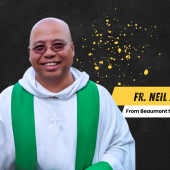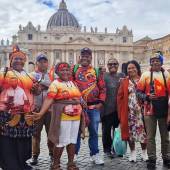Washington D.C. welcomes the relics of Saint Pio of Pietreclina

On May 21 and 22, Saint Pio of Pietrelcina's relics will be brought to the Basilica of the National Shrine of the Immaculate Conception, Denver, Colorado.
Sanit Pio of Pietrelcina never visited the United States during his lifetime; his relics, including various bodily parts, will visit Washington D.C. this weekend.
Veneration of the statues will take place at the nation's largest Catholic church.
The 20th-century Italian priest known as "Padre Pio" was afflicted with the stigmata, or wounds that look like those on Christ's body at the cross.
During his life on earth, he also performed a lot of miracles through his power.
Jacquelyn Hayes, a spokesperson for the shrine, told CNA that Padre Pio's relics will visit the basilica for the first time this weekend.
A piece of his mantle, a lock of his hair, a part of his handkerchief containing his sweat, as well as crust from the saint's wounds are present in the first and second classes of relics.
Cardinal Wilton Gregory, the Archbishop of Washington, will celebrate a Mass in honor of Padre Pio at 4:30 p.m. on May 21.
Veneration of the relics will be available Saturday from 2 p.m. until 4 p.m. at the Great Upper Church, and also Sunday from 11:00 a.m. until 4:00 p.m.
A nonprofit foundation in Tuckahoe, New York, is providing the relics with the support of the Archdiocese of Washington, which annually sponsors a tour of Padre Pio's relics.
On its website, the foundation states that it sponsors "a tour of the relics each year to give thousands of faithful an opportunity to pray and ask for Padre Pio's intercession."
The foundation promotes awareness of the saint and his charism and accepts requests to host relics in dioceses or parishes.
A veneration request for an archdiocese, a diocese, or a parish must come from the archbishop, the bishop, or the pastor of the parish, according to the foundation's website. - Anbu Selvam
Radio Veritas Asia (RVA), a media platform of the Catholic Church, aims to share Christ. RVA started in 1969 as a continental Catholic radio station to serve Asian countries in their respective local language, thus earning the tag “the Voice of Asian Christianity.” Responding to the emerging context, RVA embraced media platforms to connect with the global Asian audience via its 21 language websites and various social media platforms.














